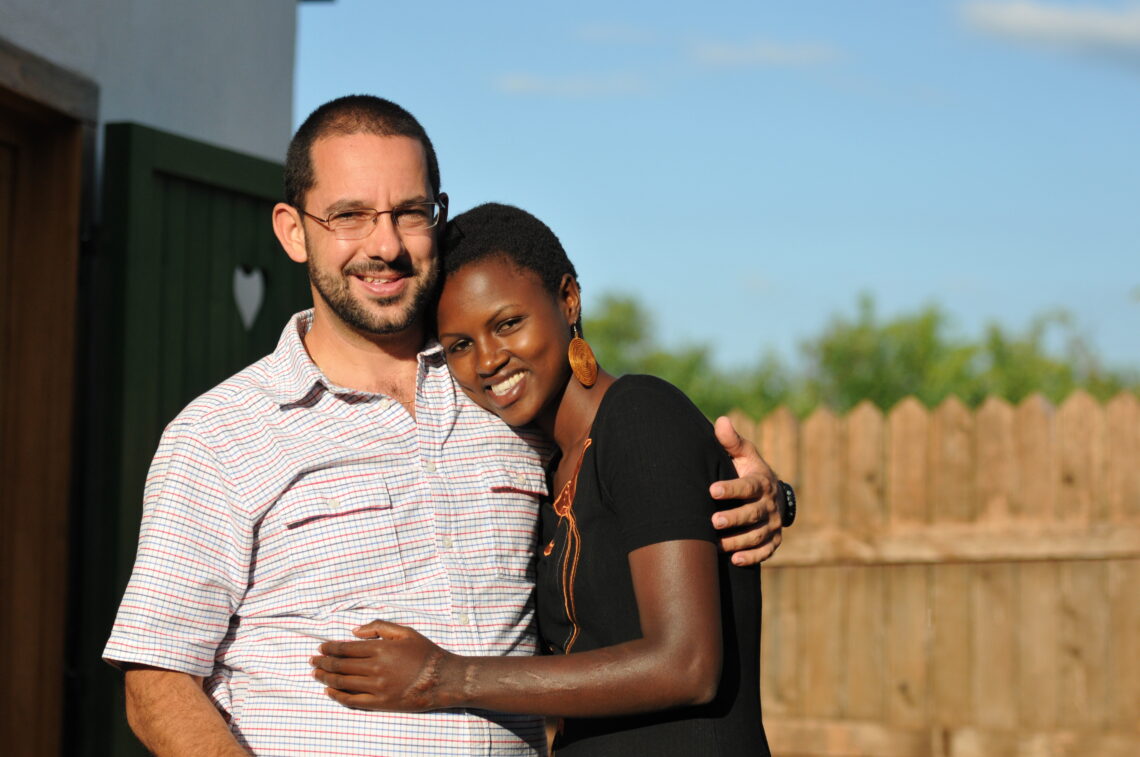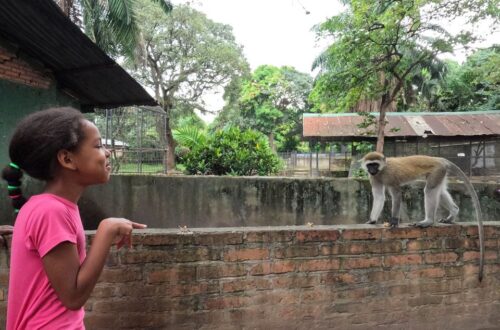
About how I met Stefan
It was a day like any other in May when I went into town for some shopping. The downtown area was as hectic and vibrant as usual, the bus station was still noisy thanks to those guys called ” convoyeurs ” who were doing their job of announcing by shouting where the buses were going and how many seats were left. As strange as it sounds, I always liked the atmosphere of organized disorder in the big cities. Growing up in Bururi, a small town in the south of the country, Bujumbura was for me a city full of people who came from all over the country, a city that offered much more opportunities because it was the capital, the nucleus of all political and commercial life.
This is why, after finishing high school, I was determined to go to university in Bujumbura. I wanted to experience student life in a big city. However, this meant that I needed a place to stay for the next four years. In our culture, the family is a complex thing, it has many meanings and plays different roles, depending on the situation. In general, on social occasions such as baptism and marriage, alongside aunts, uncles, cousins and grandparents if they are still alive and well, the family also includes neighbors and friends. At funerals and mourning ceremonies, a whole community is mobilized: old friends and acquaintances, friends of uncles, aunts and cousins, school colleagues. Finding accommodation for the 4 years involved family members who were very close and on good terms with my parents. This is how I ended up at Uncle Willy’s, where I lived for about 5 years with my cousins.

So, that day in May I was about to take the bus home. Suddenly, when I was about to step up to get in the bus, someone gently took my hand and pulled me aside. Quite a simple and natural thing as it could have been any of my friends. But no, it wasn’t a friend or an acquaintance or anyone else, but it was a muzungu (that’s what we call white people at home)! In all his embarrassment, he politely apologized to me for the way he stopped me while telling me what his name was. Smiling and a little shy, he was all handsome, the sunlight shining through his glasses made it difficult for me to see his eyes staring straight at me. In his thin T-shirt, velvet trousers and Sebago shoes, he told me that he is Stefan from Baraka. Baraka is the main town in Fizi territory, in the province of South Kivu, in eastern Congo, on the shores of Lake Tanganyika. But he also added that he is from Romania, which made more sense to me because Stefan from Baraka raised a lot of questions, starting with what a muzungu could do in Baraka. But I guess he wanted to comfort me by telling me that he is my neighbor, as he was pointing out that Baraka is right next to the Ubwari peninsula.
Although it sounds strange, for me it was a pleasant surprise because everything happened spontaneously and naturally. The whole thing took 1 minute at most, and here I am already on the bus on my way home with Stefan’s phone number in my phone book. And yes, instead of asking for my number in a classical way, he politely gave me his number. I don’t know if it was his strategy, but I can tell it worked. I found his approach more charming than strategic. I felt confident knowing that I was the only one responsible for deciding if I wanted to see him again or not, if I was going to call him or not. And guess what , I called him back.


On the bus, people were already starting to tease me because they had seen everything. They said I had just hit a jackpot. This is in the context that in our society a muzungu is considered rich while some girls dream of finding a muzungu husband. While on the bus, I received a message from a cousin who I had no idea had seen me: “When are you going to introduce us to the muzungu? I really started to wonder why it was so important for most people to get to know a white man.
Thus, having a muzungu friend is seen as something that is both cool and challenging. This carries with it the associated prejudices that come with this friendship, where expectations of him are in some cases abusive. For the most part, when going out to a bar or restaurant, the muzungu is expected to pay for everyone else. He is considered the boss in the local sense, the one who offers free beer. However, the girls who go out with the white men are seen as those who are paid for the services they perform for them.
For that reason, everyone was curious about where I met Stefan because those around me did not put me in the category of girls who offer services. It was also a challenge for me to tell the truth because I was afraid of what people would say. Telling everyone that I had met him on the street created total confusion and confirmed some of the stereotypes. This is where I ended up lying to my mum, telling her that I met Stefan in the university library! Fortunately, Stefan let me know that during the “interview” he had with Mum, he obviously told her everything in detail. Surprisingly, Mum never discussed this with me. As someone who was quite sensitive to our lies, she did not bring up the fact that I lied to her. Anyway, the idea that she knew the truth was a relief for me, no matter that I was not so brave to own it.

The situation was a little out of the norm in a culture where taking a man to visit your family is seen as a message. It is as if you want to tell them that there is something happening in the near future, a way of introducing himto the family as a pretendant. This is in the sense that Stefan insisted on coming to see me at Willy’s after about a month of meeting me. As he was working in Baraka, he occasionally came to Bujumbura where we would see each other once or twice at most a month. Not only did the distance not allow us to see each other often in order to get to know each other, but I did not make it easy for him either. I continued to prioritize my routine even on the days when he was in Bujumbura, giving little time for our get-together. It was only when he distanced himself from me and did not give me so much importance that I woke up from my frenzy, it was my turn to chase him. I played my cards very straight by inviting him to the ceremony for the public defense of my final dissertation. It was a small reception with a few relatives and friends. It was also my way of acknowledging the fact that I was dating him in front of everyone. I was more excited about his coming than about graduating from university and I wasn’t the only one; the whole family was looking forward to welcoming a muzungu and having a chat with him. Instead of Stefan, a bundle of flowers arrived on his behalf, carried by a driver from their office who informed us that he was unable to join us, as he was working in neighboring DR Congo! A little disappointed, I began to worry that he was starting to slowly withdraw. However, the flowers I received gave me hope that he would show up the next time I invited him. I was in love with him and I was ready to embrace my relationship with him.




Thereafter, not only did we spend time together every time he came to Bujumbura, but from time to time uncle Willy would also invite him to have a beer together. Stefan is very open and sociable, my whole family loved him, especially Uncle Willy. They call him the white African because of his sense of humor and his sociable spirit. He introduced the pork barbecue to our family, and his recipes of chimichurri and salata de vinete are always recounted in our family reunions when remembering those barbecues. No matter if we were a couple or not, he was already that family friend that everyone was looking forward to seeing again very soon, the one who was to become the father of my children!





